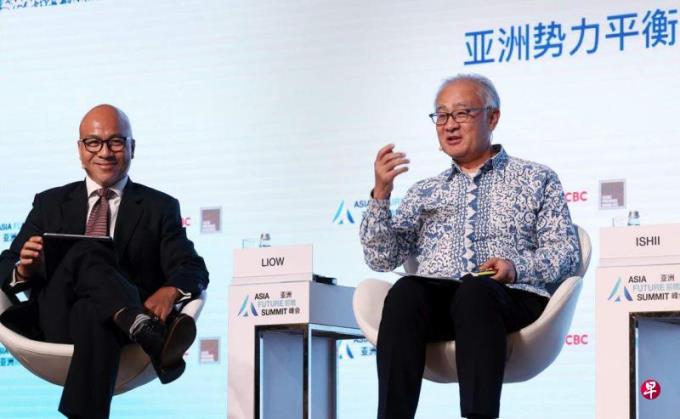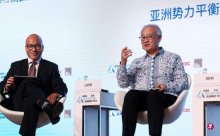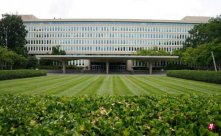
In the two -pole world headed by China and the United States, India and Indonesia will become an important rise for the future, and determine who can lead the international public opinion in both sides of China and the United States.battlefield.
The former Japanese Ambassador to Indonesia, Wednesday (October 4th) in the " In the speech, India and Indonesia will become more and more important on the international stage. Facing the tremendous changes in the international structure, Japan continues to strengthen the alliance with the United States, and it also urgently needs to strengthen cooperation with Southeast Asian countries and like -minded countries.
The text of Ishii is inferred by the trend of economic and population growth. Twenty or thirty years later, the seven most important economies in the world will be the United States, China, India, Japan, Indonesia, Europe, and Russia."If there is an incident similar to the Ukrainian war, the United States, Japan and Europe will stand aside, and China and Russia are on the other side. India and Indonesia are in the middle./P>
The competition between China and the United States in Southeast Asia has become more and more intense in recent years, and all parties have strived to strengthen their influence on this important maritime route.The text of Ishai pointed out that India will also join this battle in the future.
Southeast Asian countries have repeatedly emphasized that they are unwilling to choose the side station, but the text of Ishii revealed that according to the Japanese Ministry of Foreign Affairs's polls, most people in Southeast Asian countries have "made choices in their hearts."Among them, Indonesia, Vietnam and the Philippines tend to the United States and Japan; Thailand, Malaysia and Myanmar sway in China and the United States; Cambodia, Laos and Brunei tend to China.Only Singapore is more special, and it has close contact with China and the United States.He said, "Singapore can bet on both sides."
Liao Zhenyang: The selection of the southern Asian national interests of the Asian Simpan must unite to face the challenge
However, Professor Liao Zhenyang, a professor of comparison of politics and international politics of Nanyang Institute of Technology, pointed out at the same session that the situation will continue to change, and the political positions of Southeast Asian countries cannot be simply classified.
Liao Zhenyang reiterated that the selection of sides does not meet the interests of Southeast Asian countries.In his opinion, there is a problem in the discussion of the side selection, because it will establish a dual -opposing worldview, but in fact, no Southeast Asian country can choose to cooperate with one of China and the United States.
He emphasized that Southeast Asia needs to take the initiative to respond to the challenges brought by the Sino -US game, strengthen the structure of Asia's self -safe itself, and cooperate with other regional organizations, so that they will not be "subject to the competition of great powers."



